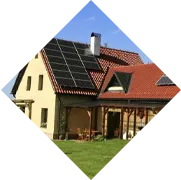different solar panel sizes
Understanding Different Solar Panel Sizes A Guide to Choosing the Right Fit for Your Needs
As the demand for renewable energy sources continues to rise, many homeowners and businesses are turning to solar energy as a viable solution. One of the key factors to consider when investing in solar power is the size of the solar panels. Solar panel sizes can vary significantly, impacting not only the installation process but also the overall energy production, efficiency, and cost. In this article, we will explore the different solar panel sizes, their implications, and how to choose the right size for your energy needs.
The Standard Sizes of Solar Panels
Solar panels typically come in a few standard sizes, which generally ranges from small residential panels to larger commercial panels. The most common dimensions for residential solar panels are around 65 inches by 39 inches (approximately 1.65 meters by 1 meter) with a power output of around 300 to 400 watts. However, you’ll also come across larger panels designed for commercial applications, which can measure up to 78 inches by 39 inches (approximately 1.98 meters by 1 meter) or even larger.
Smaller solar panels, often found in portable solar solutions or smaller installations, may measure approximately 39 inches by 27 inches (about 1 meter by 0.68 meters) and generate around 100 to 200 watts. It’s important to note that while the physical size of the panels is a factor, the output wattage is more critical when calculating your energy needs.
Factors Influencing Solar Panel Size Selection
1. Energy Needs The primary factor in choosing solar panel size is your energy consumption. By analyzing the energy bills and determining how much electricity you need to generate, you can ascertain the number and size of solar panels required. Larger households or businesses with higher energy demands will benefit from larger panels or a greater number of panels.
different solar panel sizes

2. Available Space The installation area plays a significant role in determining which solar panel size is appropriate. If you have limited roof space, you might want to consider solar panels designed with higher efficiency ratings. These panels can generate more electricity within a smaller footprint, impacting size choices and layout.
3. Aesthetics and Building Codes In some regions, homeowners must adhere to local building codes or homeowners' association regulations that may dictate the size, style, and installation configurations of solar panels. Aesthetic considerations can lead to the selection of smaller or low-profile solar panels to maintain the home's appearance.
4. Budget Constraints The cost of solar panels varies with size, efficiency, and technology type. Larger panels might have a higher initial cost, but they can offer better value in terms of installation efficiency and energy output. It's essential to weigh the long-term savings on energy bills against the upfront costs when making a decision.
The Impact of Panel Efficiency
Efficiency is another critical aspect when discussing solar panel size. High-efficiency panels convert a larger portion of sunlight into electricity, meaning you may need fewer panels to meet your energy needs. For example, a high-efficiency solar panel rated at 400 watts will produce more power than a standard panel rated at 300 watts. This means you might fit four high-efficiency panels in your installation space instead of five standardized panels, maximizing your roof's potential while reducing installation costs.
Conclusion
Choosing the right solar panel size is not a one-size-fits-all situation. By assessing your specific energy needs, available space, aesthetic preferences, and budget, you can make an informed decision that will serve you well in the years to come. As solar technology continues to evolve, new options in terms of efficiency and design will emerge, providing even more ways to harness the power of the sun. Whether you opt for compact, efficient panels or standard-sized options, investing in solar energy is a commitment to sustainability and a step toward reducing your carbon footprint.
-
String Solar Inverter: The High-Efficiency Solution for Smart Solar EnergyNewsJul.14,2025
-
Revolutionizing Rooftop Energy with the Power of the Micro Solar InverterNewsJul.14,2025
-
Power Independence with Smart Off Grid Solar Inverter SolutionsNewsJul.14,2025
-
On Grid Solar Inverter: Powering the Future with Smart Grid IntegrationNewsJul.14,2025
-
Monocrystalline Solar Panels: High-Efficiency Power for the Future of Clean EnergyNewsJul.14,2025
-
Bifacial Solar Panel: A Smarter Investment for Next-Generation Energy SystemsNewsJul.14,2025







